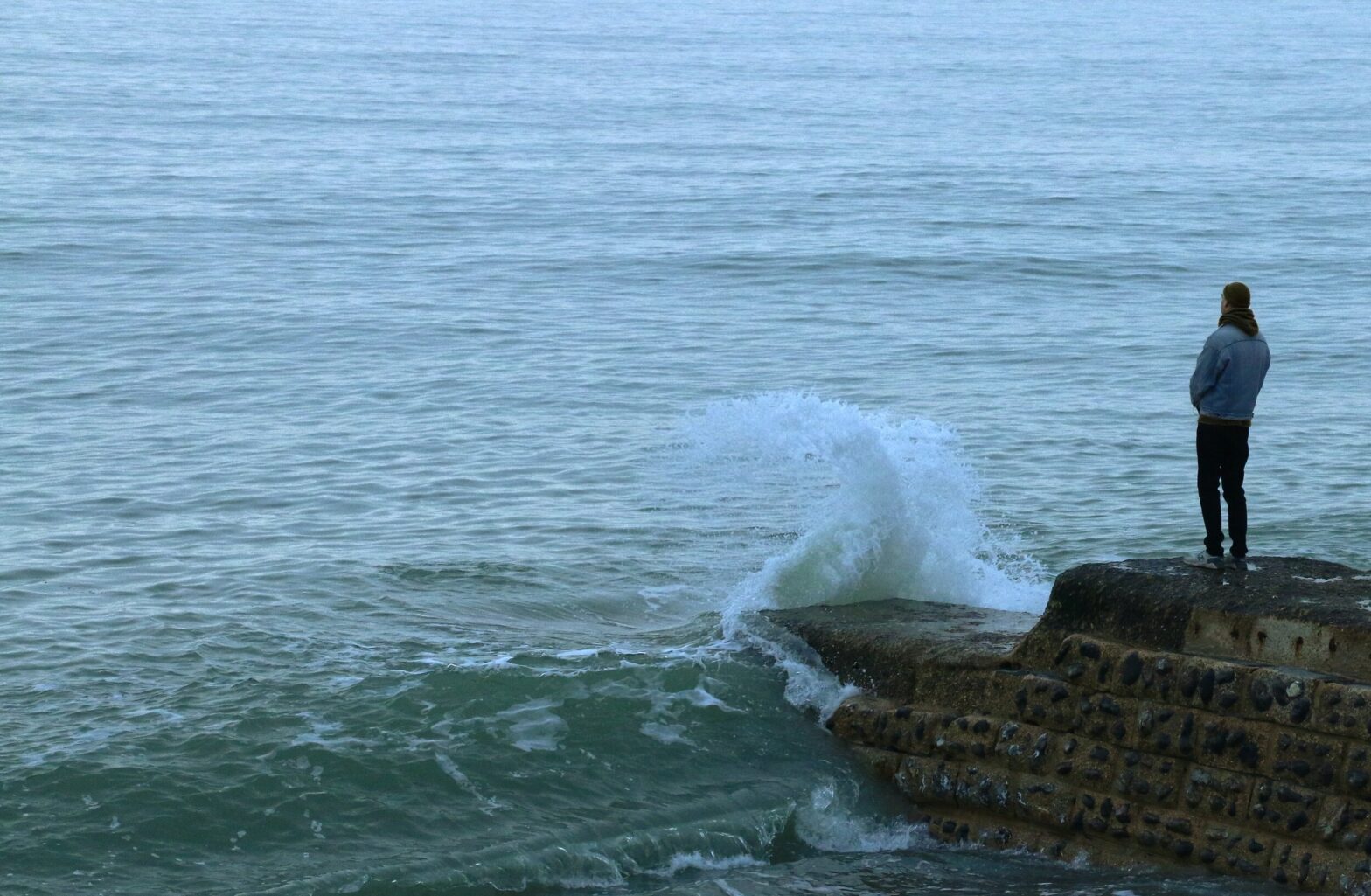It’s Scary. So What?

Back in January of 2019 – seems ages ago, back in the PreCovidian Era – I was a guest on my friend Deepa Natarajan’s podcast.
Deepa is an extraordinary human being and good fun to be in conversation with. Her show, Meet My Potential, focuses on leadership, awareness, stepping into one’s potential (of course) and a whole lot more. Good, healthy breakfast stuff!
Fittingly, our episode was centered on men. Specifically, men and vulnerability, a topic I’m often asked about.
Deepa reached out to me recently on LinkedIn, which I took it as nudge from the cosmos that this would be a good theme for this week’s musings.
Vulnerability is a funny thing. On one hand, it functions as the foundation upon which any healthy, trusting relationship is built. While it’s easy to see and feel in our most intimate relationships, it’s also wildly important whenever trust enters the picture.
For instance, when meeting with a prospective client for the first time, a little (or a lot) of vulnerability from me creates space for the other person to open internal doors of their own.
On the other hand, vulnerability can be scary thing.
If we’ve been burned, betrayed or otherwise hurt in relationship – as most of us have inevitably have – voluntarily opening to possibilities that, by their very nature include hurt, is a tall order.
As a skier, former instructor and racing coach, I would never dream of telling anyone thinking of getting on the snow that they won’t fall.
First, I’d be lying.
Second, it’s a factual nature of the beast that falling is a risk inherent to the sport.
As I look at my own history, personal and professional, I’ve gotten my vulnerable ass kicked over and over again…
And, with only one or two clear instances of “what the !#@& was I thinking!!?”, there’s not much I would do differently.
The many lessons, painful and messy as they were, have been too valuable.
Here’s the thing: In that podcast episode, Deepa and I wrestled with the very human, paradoxical needs for intimacy and connection and protection from hurt.
There men are concerned, the culture errs heavily on the protective side, encouraging us to build thick defenses against everything from physical and emotional injury to the scourge of not having the answers and/or needing to ask for help.
If you’re wondering why there’s an epidemic of loneliness and high rates of suicide amongst middle-aged men, this ain’t exactly nuclear physics we’re talking about…
What’s true, as Deepa and I discussed, is that there are a whole lot of men starving for connection and intimacy whilst also gripped by paralyzing fear of the very vulnerability that makes those things possible.
The rewards of laying down ingrained armor are rich, but doing so requires an intentional leap of faith into open-hearted space.
That’s a risky thing to do. Opening one’s heart, after all, also means opening to heartbreak in the same way opening to love includes opening to loss.
It’s the way this real-life stuff works.
Yeah, it’s scary, particularly the first time out. Not to be cavalier, but so what?
My own perspective, which I invite you to try on, is that being open to connection, intimacy and, by the way, the possibility of hurt and rejection, is a whole lot better than armoring-up and pretending life can be lived without risk, pain, or loss.
There’s more to say, but I’ll step aside and let a much-beloved author have the last word:
“Of course I will hurt you. Of course you will hurt me. Of course we will hurt each other. But this is the very condition of existence. To become spring, means accepting the risk of winter. To become present, means accepting the risk of absence.”
Antoine de Saint-Exupéry, from a letter to Natalie Paley, 1942